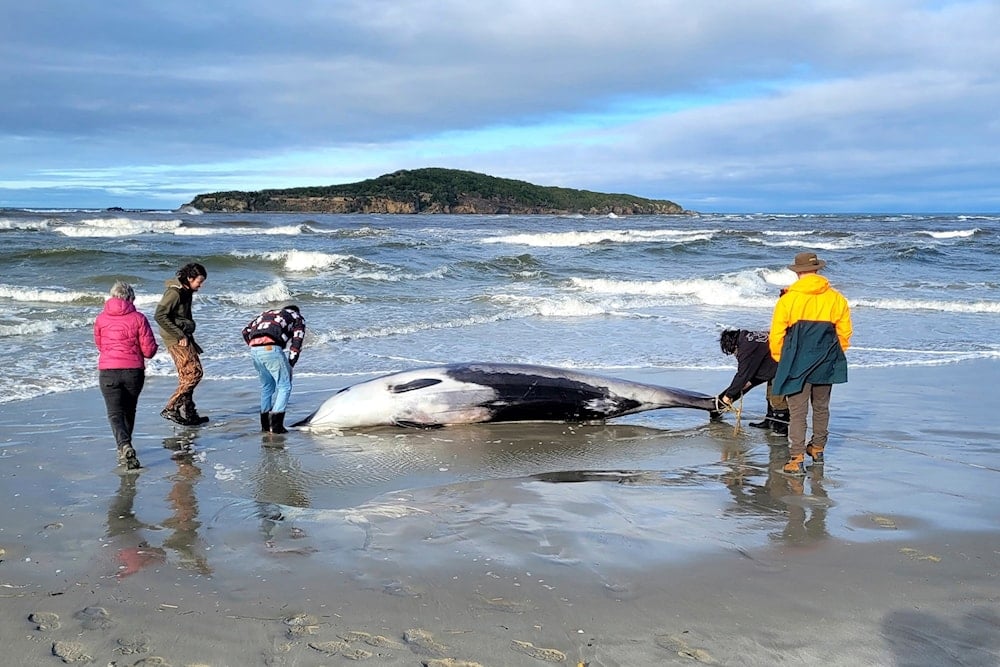New Zealand’s oceans warming 34% faster than global average: Report
A new government study warns that New Zealand’s rapidly warming seas are fueling marine heatwaves, rising sea levels, and threatening coastal communities.
-

In this photo provided by the New Zealand Department of Conservation, rangers inspect what is believed to be a rare spade-toothed whale on July 5, 2024, after it was found washed ashore on a beach near Otago, New Zealand. (Department of Conservation via AP, File)
The seas surrounding New Zealand are heating up significantly faster than the global average, with scientists warning that the accelerating trend could have devastating consequences for the island nation’s coasts and ecosystems.
A new government study, titled Our Marine Environment, found that New Zealand’s oceans are warming 34% faster than the global average, while also becoming more acidic and contributing to rising sea levels that threaten thousands of homes.
“Climate change is driving significant changes in our oceans,” the report said. “Ocean temperatures are increasing, and marine heatwaves are becoming more frequent, intense, and longer-lasting. Sea-level rise is accelerating at many locations.”
Intensified local heating
Researchers attributed the rapid warming to disruptions in oceanic currents flowing between New Zealand and Antarctica, combined with shifts in atmospheric circulation patterns that have intensified local heating.
Shane Geange, a marine advisor at the Department of Conservation, said the findings show how climate change is “making existing problems in our oceans even worse.”
“For example, global warming has made New Zealand’s sea temperatures rise much faster than the worldwide average,” Geange noted. “This means we’re seeing more frequent and severe marine heatwaves. Sea levels are rising more quickly, and our oceans are becoming more acidic and losing oxygen.”
According to the study, sea-surface temperatures at four long-term monitoring sites increased between 0.16°C and 0.26°C per decade from 1982 to 2023.
Wider context
The warming seas are already having profound ecological effects. Many native species are struggling to adapt to the rapidly changing conditions and face growing pressure from invasive pests. Warmer-than-average sea temperatures have previously been linked to mass deaths of yellow-eyed penguins, one of New Zealand’s most threatened seabirds.
“Because of these findings, how we manage New Zealand’s marine environment needs to change,” Geange added. “We now have enough evidence to take action, and delaying risks further harms to our marine ecosystems.”
The report also highlighted the socioeconomic impact of rising sea levels, which are already affecting low-lying coastal towns. More than 200,000 homes, valued at approximately US$100 billion (NZ$180 billion), are located in areas at risk of coastal inundation and inland flooding.

 3 Min Read
3 Min Read











